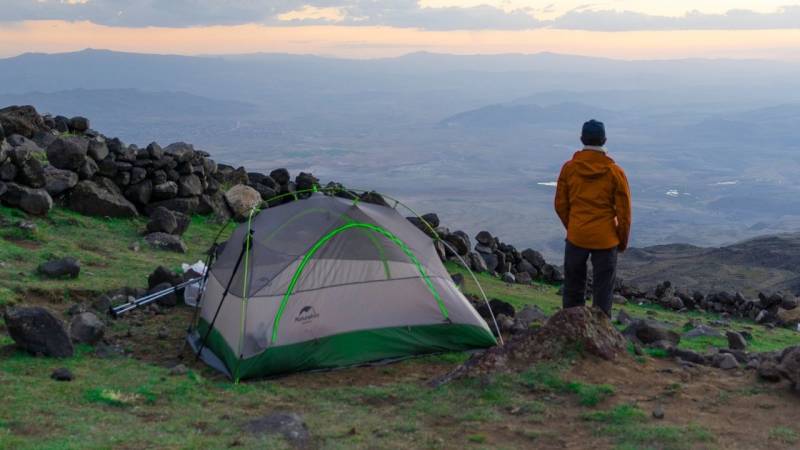
7 things you should never do when you go camping alone
👉 The key facts from this guide
- Be well-prepared: Pack everything necessary and learn important skills such as setting up a tent and starting a fire.
- Inform someone about your trip: Share your travel route and planned return with family or friends.
- Don't overestimate your abilities: Choose activities and hiking trails that match your level of experience.
- Avoid arriving at the campsite at night: Allow enough time for setting up the tent and dinner before sunset.
- Provide entertainment: Bring books, a journal, or other activities to keep yourself occupied during the break.
- Don't camp too publicly: Do not share your exact location with strangers online to ensure your safety.
Alone camping can be scary, especially if it's the first time.
You have to be especially careful with your surroundings and the people you encounter. In the wilderness, you should rely on no one but yourself.
As with any outdoor excursion, there are rules and regulations that you should follow for your comfort, safety, and overall enjoyable experience.
Here are 7 things you should never do when going alone into the woods and camping there.
1. Start without preparation
This is the most basic and important thing to remember - be prepared.
As mentioned before, you can only rely on yourself in the wilderness.
So learn how to set up a tent, ignite a fire, and prepare a meal for yourself. Pack everything you need, from food, water, hygiene items, medication, sleeping gear, cooking utensils, a first aid kit, etc.
It is also important to bring a map, a compass, a GPS, a whistle, and some chalk in case you get lost.
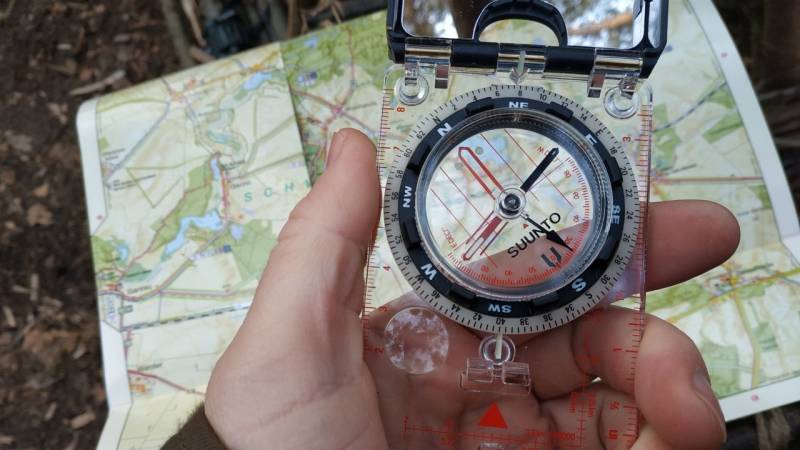
Learn how to use a compass and map naturally beforehand. Otherwise, a compass is as useless for navigation as a GPS device without batteries.
Reading tip: 3 primitive signals to attract attention in an emergency
2. Don't tell anyone
Another important thing to consider is to inform a family member or a friend about your trip.
Provide all important information, such as your entire travel itinerary, the exact places where you will be staying, and when you will be returning.
That may sound a bit excessive, but it's important to be on the safe side. Even if I'm just taking my children to the forest for an afternoon, I always let my wife know where we'll be.
I recommend using the service What3Words to share your exact location based on geographic coordinates. This is especially helpful if you are not near landmarks like street signs.
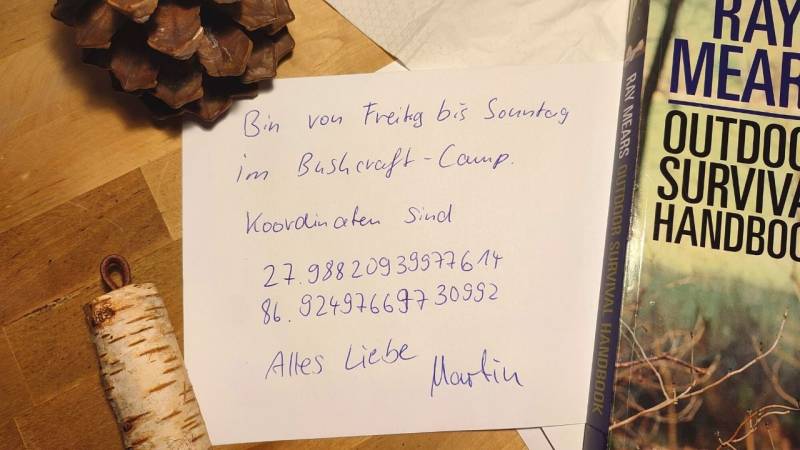
3. Overestimating Your Abilities
Walking 20 kilometers on a familiar path back home is entirely different from hiking 35 kilometers alone in the wilderness. And that with a heavy backpack on your back.
Make yourself comfortable on your first solo trip and choose activities or take hiking trails that match your abilities.
Don't try to take on too much at once. One or two nights of camping alone should be enough for the first time.
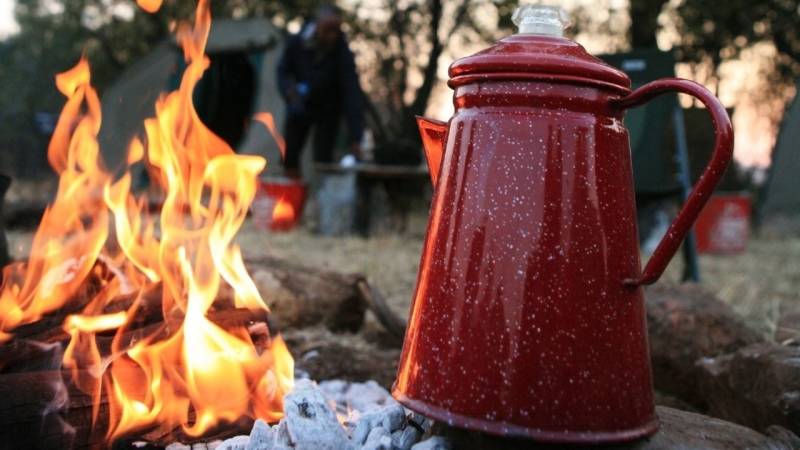
Read also: The first night in the forest: how to sleep well in your camp [Location, Equipment, Attitude]
4. Arriving at the campsite at night
This is not ideal for a first solo tour. In the dark, you are disoriented, and it becomes overall more difficult to find and use equipment.
So make sure to arrive at your spot at least two hours before sunset to allow enough time.
After all, you have to find a good spot to set up your tent or tarp. And dinner is still on the agenda.
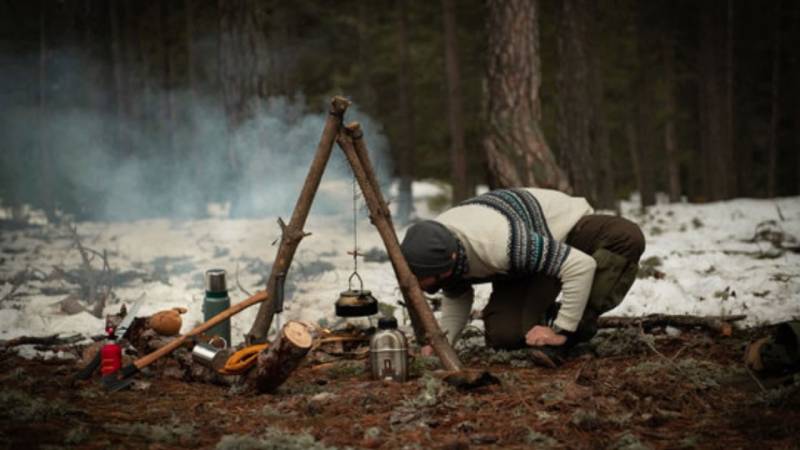
Read also: How to find the ideal location for your bushcraft camp
5. Forget about entertainment
Since you are alone, it is ideal to entertain yourself during downtime on your journey. Bring a book, write in your journal, or get an adult coloring book.
You could also train other skills. For example, I constantly look for animal tracks in the area, or I practice making ropes or carving a wooden spoon.
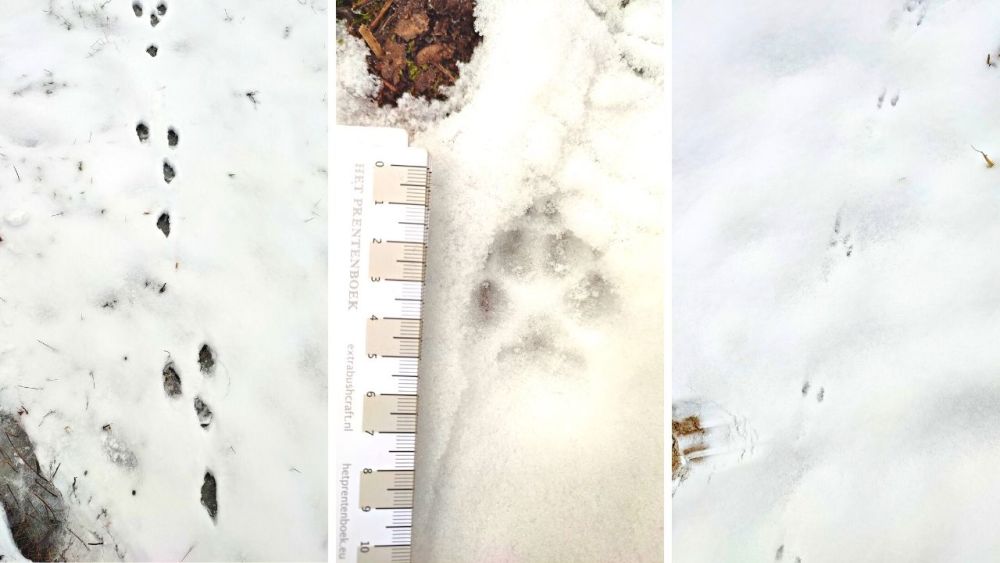
6. Don't fight in public
Telling your loved ones where you're going is good. Informing strangers on the internet that you're not at home can be a mistake.
Post the wonderful sunset after your trip instead and avoid sharing any location data that precisely describes where you are. It can have a significant impact on others knowing your plans and making you vulnerable to attacks.
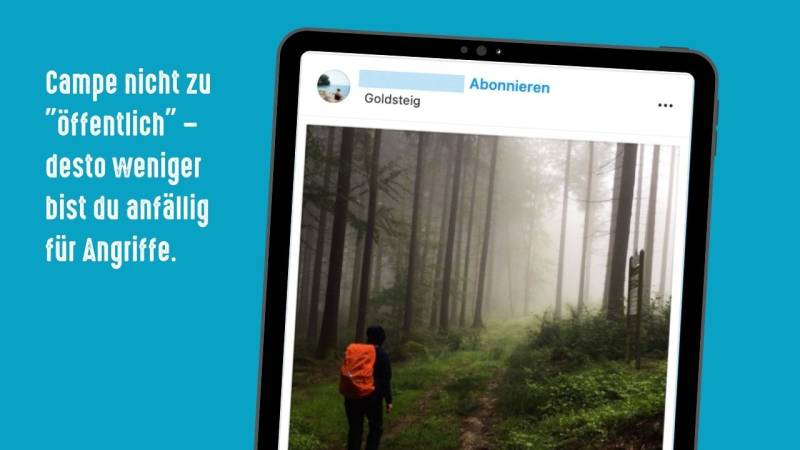
Read also
8 reasons why camping alone can be great - When you go camping alone, you can do whatever you want. You don't have to make compromises and don't have to wait. Here are 8 reasons why solo camping is worth it.
7. Freaking out
I understand that. Don't worry. Because I know the feeling.
The sun has disappeared below the horizon, strange owls are hooting, and branches are cracking in the forests around your tent.
This is a perfect combination of events to cause fear - but freaking out will not change or solve anything.
Camping alone can be stressful if you let your imagination run wild.
Don't let that happen. Instead, stay calm and rational and recognize that all these wilderness sounds are normal. Just you, nature, and a lot of tranquility - and that's a good thing.
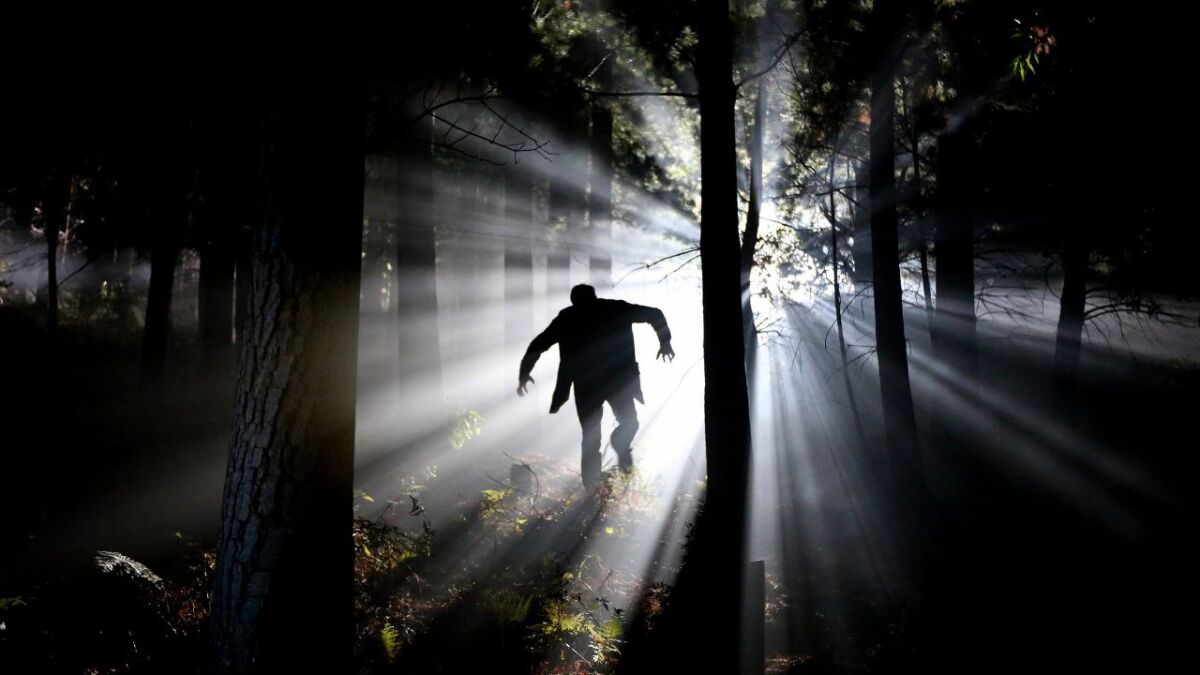
Summary
I can't express this enough: Don't be a fool.
Camping alone is a rewarding and fulfilling experience. However, you must know what you are doing in the wilderness before you set off.
If you are a beginner at hiking, Bushcrafting, or camping, it is probably best to avoid solo trips until you have more experience under your belt.
This is for your safety. Because there is always the risk that something goes wrong on your journey. And it will be much better for everyone if you are prepared and skilled enough to handle the situations.
Much of this experience can only come with time. If you are a beginner, grab your friends and go out. That's the only way to practice and gain the necessary experience.
Do you want to make packing for your next camping trip easier? Read: Checklist: What should you not forget when camping?


Author of the guide
Martin Gebhardt
Hey, I'm Martin. On my blog, you will learn the basics and numerous details about living in the wild. I think survival, bushcraft and the good life in nature are the keys to happiness. Find me here on Instagram or on YouTube. You can find more about my mission on the About Me page.
Was this guide helpful?
44 people found this guide helpful.
5.00 out of 5 points (44 Ratings)
Comments (0)
This post may contain affiliate links. So if you click on the links and make a purchase, I will receive a small commission at no additional cost to you. Click here, to learn more about it.


